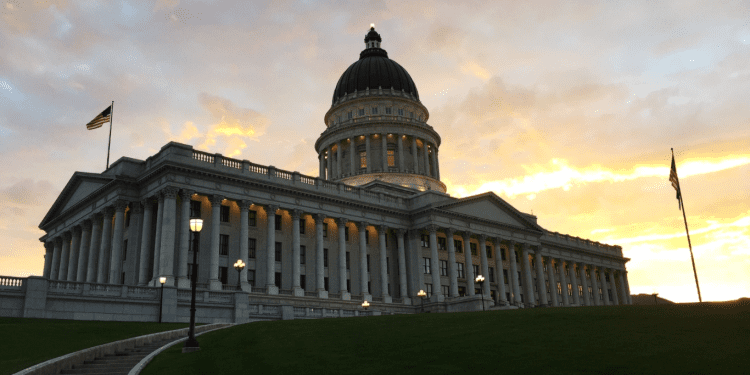- The Utah State Legislature passes the Utah DAO Acts, which grants DAOs a form of legal recognition specific to DAOs.
- Utah DAO Act was approved on March 1, 2023, by the Senate and House committees.
- One concern was DAO anonymity and unaccountability, which was addressed through a compromise requiring DAOs to reveal an incorporator while remaining anonymous.
The Utah State Legislature has taken a significant step towards supporting the adoption of Decentralized Autonomous Organizations (DAOs) with the recent passing of Act HB 357, the Utah Decentralized Autonomous Organizations Act (Utah DAO Act).
The Act provides legal recognition and limited liability to DAOs and refers to them as “Utah LLDs” or Limited Liability DAOs. The Act is a result of the combined efforts of the Digital Innovation Taskforce and the Utah Blockchain Legislature.
On March 1, 2023, the Utah DAO Act was approved after passing through the Senate and House committees. The Act defines ownership and protects DAO-compliant anonymity through bylaws. Additionally, quality assurance DAO protocols have been introduced to ensure apparent nuances in tax treatment and updated DAO functionalities.
Joni Pirovich, a blockchain and digital assets tax adviser who worked with the Digital Innovation Taskforce, took to Twitter to express her excitement, saying,
“This is a huge step for DAO innovation as the Act is based on the @coalaglobal DAO Model Law and will become effective from January 2024.”
The DAO law recognizes that DAOs are transnational entities and aims to allow flexibility for innovation while providing technological guarantees equivalent to the protections that the law seeks to protect through requiring manual reporting processes.
The Utah Blockchain Legislature had significant concerns about the anonymity and unaccountability of DAOs, which were addressed through a compromise requiring DAOs to divulge an incorporator while maintaining anonymity.
Furthermore, the Utah Blockchain Legislature determined that the original tax language used was incompatible with federal and state tax realities. So the Utah Tax Commissioner’s office proposed a compatible tax language.
Finally, there was a concern about the need for more ramp-up time for the Utah Division of Corporations to handle new applications. To address this concern, the bill’s implementation date was set for 2024, giving more time to adjust and edit practical implementations toward the bill.
The Republic of the Marshall Islands approved similar legislation last year, identifying DAOs as limited liability companies and ensuring formal DAO structure adoption in the state’s legal units.
What is a Decentralized Autonomous Organization (DAO)?
A Decentralized Autonomous Organization (DAO) is an organization that is run entirely by computer code and operates through a decentralized network. DAOs are digital entities that operate without the need for intermediaries or mediators.
DAOs are built using blockchain technology, which provides the necessary infrastructure to manage and record transactions in a transparent and decentralized way. DAOs can be used for various purposes, such as creating decentralized marketplaces, operating funds, and voting on proposals. They are designed to provide a transparent, trustless, and democratic way of organizing people and resources.
The concept of DAOs is relatively new and still in its early stages of development.
Conclusion
The Utah DAO Act is a step towards the broad adoption of DAOs in mainstream society. As the concept of DAOs continues to gain traction, we expect more states and countries to adopt similar legislation to provide legal certainty and support for these innovative entities.














